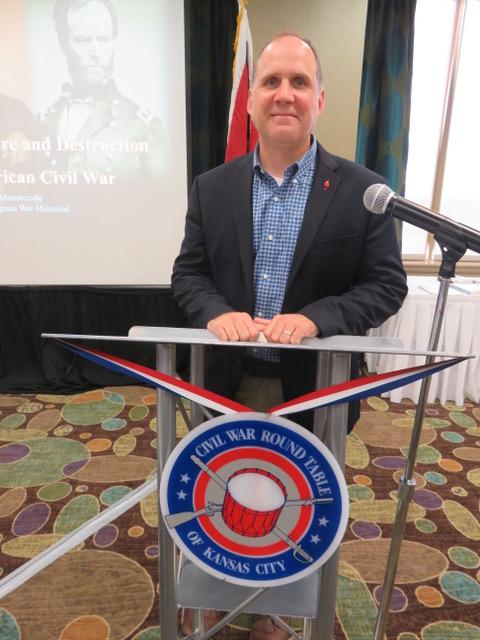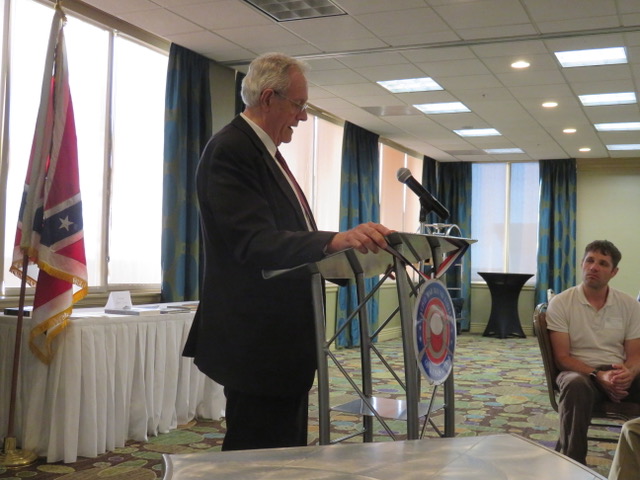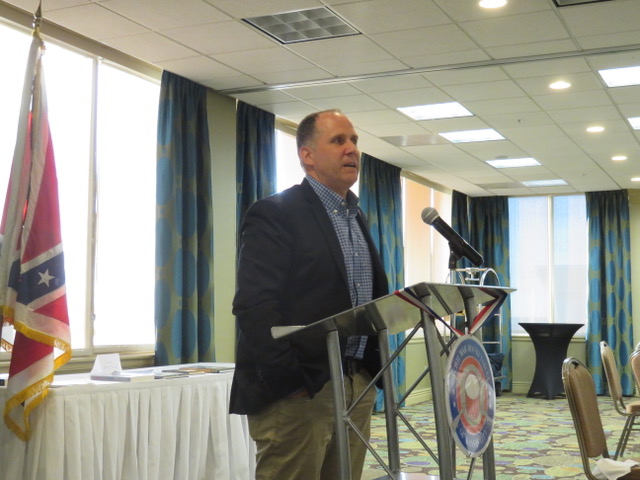
Dr. Clay Mountcastle spoke on the topic of "Punitive War." This was the subject of his book by that title, published by the University of Kansas Press in 2009, as part of its modern military series. The talk focused on the interplay of the Confederate insurgency and guerilla operations in the several theaters of the war and the Federal response to the insurgency. We would like to thank Dan Smith for scheduling Dr. Mountcastle.
The key points of Dr. Mountcastle's talk were:
-
The Civil War's "guerilla problem" was both widespread and influential.
-
The Union's response of "Punitive War" was more significant than most histories have recorded.
-
Understanding both helps to understand the true depth and complexity of the American Civil War.
The Guerilla Problem: During the Civil War, there was a level of violence occurring in many small towns. Neighbors were shooting at neighbors and at occupying Union forces. However, the Confederate resistance was unorganized and decentralized. Resistance sprung up grass-roots fashion and was hard to define. It was basically armed, violent resistance.
Punitive War: The Union responded militarily in order to punish local civilians. Union troops occupying areas should have expected that people would be unhappy and would resist because that is what happened during the Mexican War.
Dr. Mountcastle said General Thomas Ewing's General Order No. 11 really got his attention. In 1863, the Union Army forced the evacuation of rural areas in four counties in western Missouri (Jackson, Cass, Bates, and Vernon). A total of 5,000 to 10,000 people were sent packing and their farms were burned.
How effective was Punitive War? Dr. Mountcastle said in some cases it worked and in some cases it didn't. He said the destructiveness was a big deal in 19th Century America. Union soldiers forcing people out of their homes and killing livestock before winter was a big deal.
At the end of his presentation, Dr. Mountcastle discussed what he thought about removal of Confederate monuments. He is Director of the Virginia War Memorial in Richmond VA, which honors veterans serving after World War II. Dr. Mountcastle is responsible for memory and memorialization. He said memorialization is exceedingly political. That is not a bad thing, but people should make an informed decision. It is an opportunity to study this issue. Dr. Mountcastle said, as a historian, the idea of a statue being removed from a public space scares him. Statues are valuable because they spark discussion. In his opinion, statues should not be removed without discussion.
Here are additional photos from the meeting ...

Dan Smith introduces Dr. Mountcastle

Dr. Clay Mountcastle

|
|